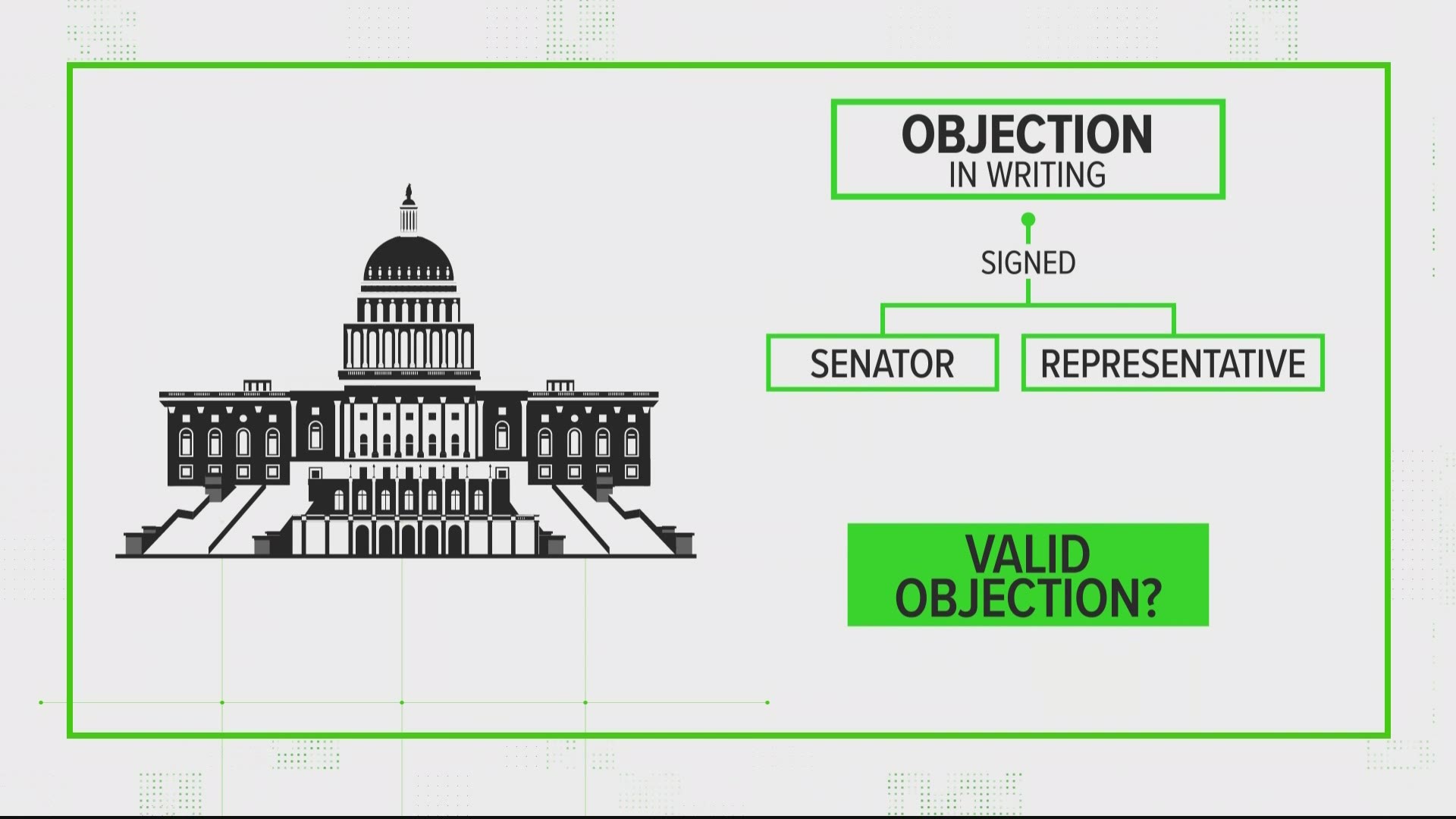WASHINGTON — This election season has been one to remember, between recounts and a global pandemic spurring the largest mail-in ballot surge yet.
States electors, whose numbers are based on their total Congressional representation, meet to place official votes for the Electoral College, a system derived back in the 18th century.
Electors from all 50 states met on December 14 to place their official votes for their states. On January 6, that vote count is finalized and election results are certified.
But what does that vote cast look like, and can Congress reject the Electoral College's decision if faithless electors happen?
Here's a look.
What’s the official process for electors casting their votes?
ANSWER:
The state's electors will meet on December 14, 2020, and send six copies of their votes to the President of the Senate, that state's Secretary of State, the Archivist of the United States and to the federal judge in the district where the electors met. Congress will count the votes during a joint session on January 6, 2021.
SOURCES:
- Aseem Mulji, legal counsel for the Campaign Legal Center
- Congressional Research Service: "Counting Electoral Votes: An Overview of Procedures at the Joint Session, Including Objections by Members of Congress" and "The Electoral College: A 2020 Presidential Election Timeline"
PROCESS:
Each governor sends a certificate showing which slate of electors won the popular vote, to the Archivist of the United States.
Aseem Mulji, who is legal counsel for the Campaign Legal Center, noted that there is a small exception for Nebraska and Maine, who split their electoral votes between the winner of the popular vote and the winner of the popular vote in each congressional district.
The governor then delivers six identical certificates to the state’s electors. Then, on Monday, December 14, 2020, electors will meet to vote for the president and vice president.
After they vote and sign each certificate, each state sends its six copies to various places: one to the President of the Senate, Mike Pence, two go to the Secretary of State for that state, two go to the Archivist of the United States, and one to the federal judge in the district where the electors met.
The first day of the newly elected Congress is set for January 3, 2021.
Congress will read the results out loud and count them up in a joint session, on January 6, 2021 at 1:00 p.m.
In the end, the President of the Senate, Mike Pence, will announce whether any candidates received the majority vote.
What happens if Congress doesn’t approve of the Electoral College results?
ANSWER:
The presidency is decided in the House of Representatives with each state delegation getting one vote. The vice presidency is determined in the Senate.
SOURCES:
- Aseem Mulji, Campaign Legal Center
- Congressional Research Service- "Counting Electoral Votes: An Overview of Procedures at the Joint Session, Including Objections by Members of Congress" / "The Electoral College: A 2020 Presidential Election Timeline" / "Contingent Election of the President and Vice President by Congress: Perspectives and Contemporary Analysis"
PROCESS:
The U.S. code does allow Congress to object to electoral votes.
Here’s how it works: an objection needs to be in writing and signed by at least one Senator and one Representative.
In terms of what counts as a valid objection, Mulji said that the laws are vague.
"There isn't a ton of guidance about... what does and doesn't count as an objection," Mulji said. "Because these are internal rules of Congress, it's up to the houses of Congress to decide whether the objections are valid.”
After there’s an objection, the two houses will then hold separate votes on whether to accept or reject it.
If there’s a split decision, meaning the House voted one way and the Senate voted the other, the objection fails and votes are counted as originally cast.
From there, the typical electoral count continues. If a candidate gets a majority of votes at 270, then he or she officially wins.
If nobody has a majority during the Electoral College meeting, the vote goes to the House of Representatives, with each state getting one vote.
That process hasn’t happened since the election of 1824, and Mulji said that faithless electors are extremely rare.
“Now, this is a fun intellectual exercise, but of course, we know the results of the Electoral College, we know that Joe Biden has won a majority of those electoral votes," Mulji said. "So something extremely extraordinary would have to happen for those results to be changed at this point.”



